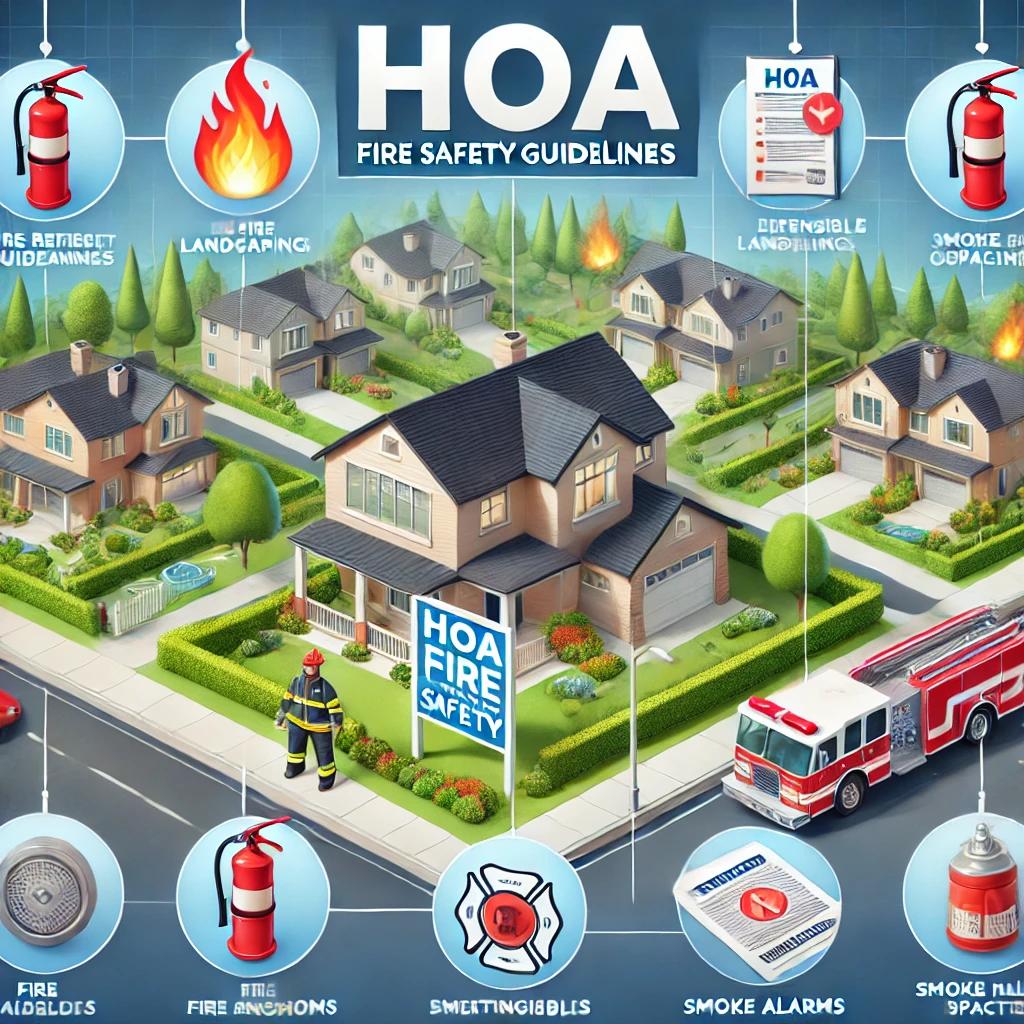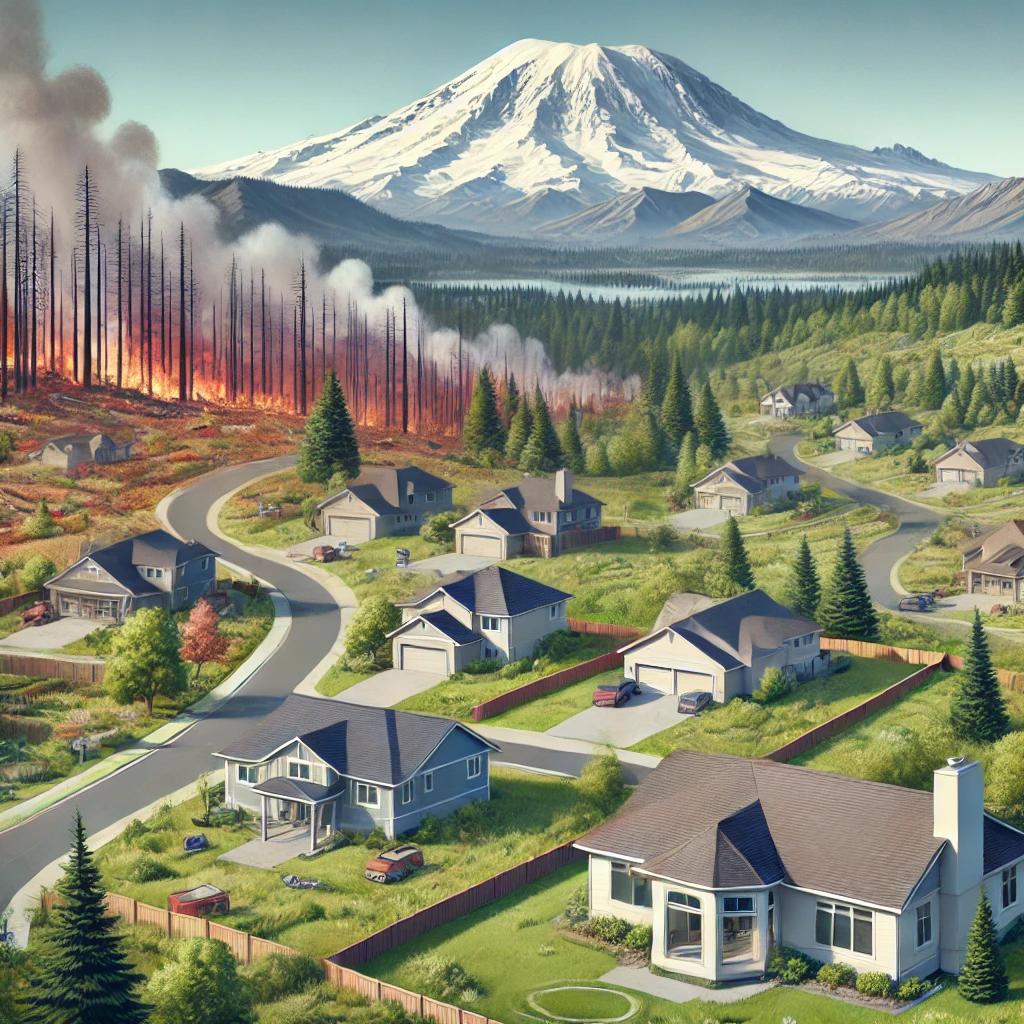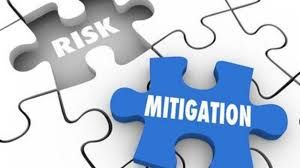HOA Risks and Responsibilities: Wildfire Dangers in California vs. Washington
 Homeowners associations (HOAs) play a critical role in managing residential communities, but their governance comes with responsibilities and risks that homeowners need to understand, especially in the context of natural disasters like wildfires. Here, we compare California HOA laws with Washington state laws to explore potential risks, particularly regarding fire hazards.
Homeowners associations (HOAs) play a critical role in managing residential communities, but their governance comes with responsibilities and risks that homeowners need to understand, especially in the context of natural disasters like wildfires. Here, we compare California HOA laws with Washington state laws to explore potential risks, particularly regarding fire hazards.

California HOA Laws and Fire Risks
In California, where wildfires are a recurring threat, the obligations of HOA members remain even if their homes are destroyed by fire. According to Chad D. Cummings, CEO of Cummings & Cummings Law, HOA dues generally must still be paid despite the physical destruction of a property. These dues typically fund community-wide expenses such as insurance for common areas, maintenance, and property taxes on shared spaces.
California law permits HOAs to impose liens and potentially foreclose on properties for unpaid dues, even under extreme circumstances like natural disasters. This legal provision underscores the importance of understanding HOA agreements and maintaining proper insurance coverage. HOAs are expected to maintain comprehensive fire insurance for shared community assets, but individual homeowners must ensure their personal properties are adequately insured.
Wildfire risks in California highlight a significant concern: while HOAs might offer some protection through shared insurance policies, they may not fully address individual homeowners' needs. Additionally, the financial burden of HOA dues combined with special assessments for disaster recovery can create long-term financial strain for residents.

Washington HOA Laws and Risks
Washington state has its own set of laws governing HOAs, outlined primarily in the Homeowners’ Association Act (RCW 64.38). Like California, HOA dues in Washington are mandatory and typically cover community expenses such as landscaping, insurance, and common area maintenance. However, there are notable differences:
-
Fire Risks and Insurance:
-
Washington state is no stranger to wildfires, particularly in rural and suburban areas. However, HOAs in Washington are not always as proactive as their California counterparts in preparing for fire hazards.
-
The state’s laws do not mandate specific fire mitigation strategies for HOAs, which can leave communities vulnerable.
-
Homeowners are encouraged to ensure that both HOA and personal insurance policies provide adequate fire protection. Some Washington HOAs may not carry sufficient coverage for wildfire damage to common areas, potentially leading to significant special assessments after a disaster.
-
-
Lien and Foreclosure Protections:
-
Washington law allows HOAs to impose liens for unpaid dues, similar to California. However, foreclosure procedures are typically more lenient, and courts may consider extenuating circumstances, such as natural disasters, before enforcing foreclosure actions.
-
-
Emergency Preparedness:
-
While California’s state government often collaborates with HOAs to promote wildfire safety (e.g., defensible space requirements), Washington’s regulations are less stringent. This places greater responsibility on individual HOAs and homeowners to prepare for fire risks.
-

HOA vs. CDD: Community Development Districts in Perspective
Some states, such as Florida, rely on Community Development Districts (CDDs) to fund infrastructure and amenities. These districts differ from HOAs in significant ways:
-
HOAs: Govern community rules and manage shared amenities, funded through dues paid directly by homeowners.
-
CDDs: Focus on large-scale community projects like roads and utilities, with fees incorporated into property tax bills.
Washington does not utilize CDDs, so homeowners rely entirely on HOAs for local governance. While this system simplifies governance, it can also centralize risks, as the financial and management burden falls squarely on the HOA.

Fire Hazards in HOA Communities: Key Considerations for Washington Homeowners
Fires don’t always come from natural disasters. For example, we had a client whose mother owned a condo where a downstairs neighbor caused a fire from a cigarette, resulting in complete damage to four units in the complex. This underscores the importance of reviewing what your HOA says about smoking policies and considering how you feel about those regulations.
Washington homeowners living in HOA communities face several fire-related risks:
-
Inadequate Fire Prevention Measures: Many HOAs in Washington lack formal fire prevention plans, such as maintaining defensible spaces around homes and common areas.
-
Insurance Gaps: HOA-provided insurance may not cover individual property losses or adequately fund rebuilding efforts for shared infrastructure.
-
Special Assessments: After a wildfire, HOAs may impose significant special assessments on homeowners to cover recovery costs, adding financial strain to residents already dealing with property losses.
-
Liability Concerns: Homeowners should be aware of their HOA’s liability policies. If the HOA fails to enforce fire safety measures and a wildfire causes damage, disputes over liability could arise.

Mitigating Risks: Recommendations for Washington Homeowners
To protect themselves, Washington homeowners in HOAs should consider the following steps:
-
Review HOA Governing Documents: Understand the association’s insurance policies, reserve funds, and responsibilities regarding disaster recovery.
-
Purchase Comprehensive Insurance: Ensure personal property and liability insurance policies cover fire damage and potential HOA assessments.
-
Advocate for Fire Preparedness: Encourage HOAs to adopt fire mitigation measures, such as creating defensible spaces and maintaining fire-resistant landscaping.
-
Engage in HOA Meetings: Participate in decision-making processes to ensure adequate financial planning and risk management.

Conclusion
Our hearts go out to the California residents affected by the devastating fires.We have a lot of friends and clients who have been directly affected. These events are a sobering reminder of how important it is to be prepared for unexpected disasters. At [Your Company Name], we are committed to ensuring that our clients are as protected as possible. We want to help you navigate the complexities of HOA policies and fire preparedness so that you feel confident and secure in your home.
If we can provide any assistance or answer questions about your HOA’s policies, insurance coverage, or fire safety, please don’t hesitate to reach out to us. Your safety and preparedness are our top priorities, and we’re here to help you every step of the way.
While California and Washington share similarities in HOA governance, significant differences exist in their approach to fire risks and disaster preparedness. Washington homeowners in HOA communities must proactively address these risks to protect their investments and ensure their safety. By staying informed and advocating for better fire prevention measures, homeowners can mitigate potential hazards and financial burdens in the aftermath of a disaster.
💡 Curious about more homeownership tips? Follow us at Rethinking Real Estate for insights and advice that keeps you informed! We have more blog posts at
or go to our youtube channel at
https://youtube.com/@rethinkingre
Categories
- All Blogs (105)
- Inheritance & Estate Planning (4)
- Auburn real estate (12)
- Bonney Lake Housing Market (4)
- Bonney Lake real estate (12)
- Buyer & Seller Advice (13)
- closing a home sale in Washington (7)
- common mistakes that delay real estate closings (3)
- contingent offer pros and cons Pierce County (1)
- Contingent Offers Explained (1)
- Downsizing & Retirement Living (3)
- Home Buying Advice (3)
- home closing tips Lake Tapps (6)
- home sale contingency Lake Tapps (2)
- Home Selling Advice (15)
- Home Selling Strategies (15)
- how escrow works when buying a house (2)
- how to protect your funds during a home purchase (1)
- Lake Tapps Real Estate (13)
- leaving home to kids (2)
- Pierce County Real Estate (14)
- Pierce County Real Estate Tips (12)
- Real Estate Closing Process (4)
- Real Estate Market Trends (9)
- real estate professionals in Western Washington (7)
- Real Estate Tips (14)
- real estate wire fraud prevention (1)
- senior living (3)
Recent Posts











If you haven't subscribed to our newsletter, you're missing out on great stories like the one above that could be coming right to your inbox every few weeks.
Please use the form to request a subscription.
